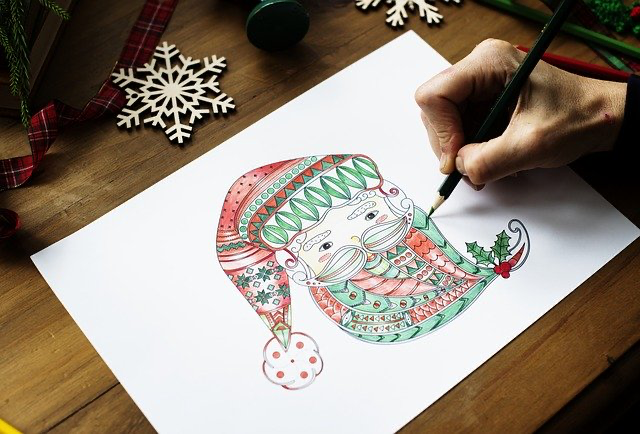The Griever’s Guide to Surviving the Holidays ~ 25 Tips
By: Grief Specialist~ Erica Honore and Sharon Brubaker

Erica and Sharon are sisters who have studied out the science of grief for over 13 years. As Grief Specialists they understand that we live in a world where grief is a word that most people are not comfortable with using. It is one of the few things that will affect every single living person throughout their lifetime. Most of us were never taught how to grieve.
Sadly, as a society we are forced to utilize the abundance of misinformation out there in an attempt to recover. Unfortunately, it is this same set of misinformation and tools that we use to approach the holidays and every celebration.
Yet, how do you attempt to enjoy the day when your heart is so broken, and you don’t want to be there? The sisters share their own experiences of the holidays after their losses to express to you the griever that you have choices. The biggest misconception for grievers is that they never believe that they have choices. Living forever in this pain does not have to be one of those choices.
Our First Holiday
The first holidays after losing a loved one can be completely devastating especially if you’re not prepared with a plan. I remember after Austin died wanting to cancel the holidays and resume my normal routine after the new year. But having young children I knew that wouldn’t be fair to them. So, I called Sharon and told her everything I didn’t want to participate in. Our family is very large and we’re all very close. We had some holiday traditions that we had been carrying on since I was in elementary school. Such as having Santa come to our house to deliver a gift to every child there.
My dad would make a huge pot of gumbo and all of our family and closest friends were welcome. I knew that trying to engage in those same traditions would wreck me, and I wouldn’t be able to get through it at all. I also knew that I wanted to be together as a family because we were all hurting, adults and children. Austin and my nephew Keith Michael were a year apart in age and they were best buds. I felt like I was being stabbed in the heart every time I looked at him. He looked so lost without his best friend. Their normal routine was to play for hours with all of their new Christmas toys.
I knew that this first Christmas without Austin was going to be extremely hard on Keith Michael, so I needed to include the kids in whatever we were going to do. What Sharon and I came up with was a family sleepover. My parents hosted us, and we did a potluck style dinner. We brought all of our kids presents, which they opened Christmas morning after breakfast. We laughed, we cried, and we told story after story about Austin and our hearts were completely broken.

We were all holding the space for one another and trying to get through our first holiday without Austin as best we could. As I have shared many times before, my experience after Donovan passed was not quite the same and I was resisting everything. I didn’t come up with a plan other than I was completely certain I didn’t want to celebrate at all.
Louis and I decided to go to my mother-in-law’s house in Louisiana for Christmas and I was miserable. I was absolutely not prepared, and I thought not being home would help me. Although I knew I couldn’t outrun my grief that’s exactly what I was trying to do. I honestly would have been more comfortable at home. I was going to grieve no matter where I was. Because of our experiences, Sharon and I felt it important to try to help guide you through your first holiday with this 25-step survival guide. The biggest mistake grievers make is setting their holidays on autopilot. Not being prepared can have disastrous results, which I learned first-hand.

Grieving Through the Holidays
-
Be honest with yourself and acknowledge that the holidays are going to be different and challenging to get through. A lot of the time we intellectualize our grief and pretend that things are not as bad as they are. But if we’re truly honest with ourselves we need to admit that grief happens in our hearts and our hearts are broken. Celebrating a holiday without our loved one will be utterly devastating.
-
Create a plan. Make a list of the things you DO and Don’t want on that day. Do not be afraid to communicate these things to your loved ones. Include your children and important loved ones in creating the plan. In most instances, they want to support you in whatever way possible. In some cases, when family relationships are not as healthy as they should be there can be an element of drama. Communicate your needs and if they are not being honored then decide for yourself if you want to participate. It’s okay to choose not to attend if you’re not being supported. Don’t force yourself to do anything you’re uncomfortable with because you will be miserable.
-
Decide what traditions you would like to honor, if any. Holiday traditions are sometimes passed down from generation to generation. This is often why we are so conflicted when we are grieving because we want to honor our family traditions, but when we’re hurting this only brings us more pain. Go through your list of family traditions and pick those that you’re comfortable honoring. Passing on the ones that will be extremely painful for you doesn’t have to be forever, it’s just until you’ve healed yourself enough that you can participate in them again.

-
Create new traditions. We enjoyed our Christmas sleep over so much it soon became a new tradition for my family. We just moved the location every year and each one of us took a turn hosting the family. Sharon and I have worked with hundreds of grievers and we have heard some pretty great traditions that were created after they lost their loved ones. Some began to decorate ornaments for their tree every year to honor their loved one. Some have made sure to serve their loved one’s favorite dish as their holiday meal. In instances where there has been a divorce and the family is separated for the first time we had a mom share with us that she took her kids to Disneyland on Christmas day and they all enjoyed it so much it became their new tradition. There are no rules when coming up with new traditions that will bring you and your family comfort during a very painful time of year.
-
Journal any feelings you’re struggling to communicate. Journaling is a very helpful tool to help grievers express things they are either having trouble communicating or even to help them identify what it is they’re really feeling. Sometimes we’re so consumed by our pain that we just lump all of it together, but when a griever uses a journal they can break down their feelings in a very safe way, which might help them identify things they haven’t been able to admit out loud because they’re feeling ashamed. Journaling also helps grievers release any anxiety they might be feeling about the upcoming holidays.
-
Don’t be afraid to show your emotions. Often times the griever does not want to express any emotion because they’re fearful it will make others uncomfortable. I fell into this category and I was scared to cry in front of people for fear that I wouldn’t be able to stop or that I was going to make people uncomfortable. DON’T DO THAT! It’s not our job to take care of other people’s comfort level when we are grieving. It’s okay to cry in front of your kids as long as you explain to them why you’re crying. You will be teaching them a valuable lesson about how to grieve. If you try to stuff your feelings, you will be hit by a tsunami of emotions that you will not be able to control. Allowing your feelings to come and pass through you helps to release the energy.
-
Be careful when engaging in behaviors that you’re engaging in to numb your pain. These behaviors can include alcohol, drugs, shopping, sex, cutting yourself, workaholism, abusing food (either overeating or under eating), and over sleeping. You definitely want to be very mindful of engaging in any of these behaviors, specifically if you’re using them to numb your pain. Once the numbing effect passes, we are not only left with the pain, but often we feel ashamed or regretful the next day. That’s not something you want to add to your already grieving heart. Also, overindulging in these behaviors can lead to addictions that will be very challenging to break and will damage your relationships with your loved ones.
-
Ask for help when you need it. If you began to get overwhelmed by your pain or the responsibilities that you have taken on to celebrate your holiday, ask for help. If you’re overwhelmed by your emotions and your pain don’t be afraid to seek out a therapist or a support group where you can talk through whatever it is you’re feeling. Sharon and I offer free mini sessions. Book an appointment to just talk through where you’re at. If you’re feeling anxiety or stress about what you want to accomplish to make your holiday special reach out to your friends or family members and ask them to take some of it off of your plate.

-
Include your loved one in your holiday card. After Austin died, another tradition that my immediate family came up with was taking a picture with Santa at the mall for our holiday card. In every picture we would find a way to represent Austin. Austin loved The General Lee the car from The Dukes of Hazard TV show. So, I bought one for Donovan to hold in our picture. The next year we all wore t shirts with some of his favorite Marvel characters on them. Others have shared some great holiday card ideas with us. We worked with a woman whose son wore size 17 shoes and she had been driving around with them in the trunk of her car. Prior to his passing her holiday card had been a photograph of his children. Once I shared my holiday card idea with her, she decided to have her grandson stand in his dad’s shoes next to his two sisters. It was a totally adorable way for her to honor her son and have him represented in her holiday card. Also, not sending out holiday cards is totally fine as well and don’t beat yourself up about it should you choose to not send any out.
-
Don’t make comparisons to past holidays. This first holiday is going to be completely different from any holiday you have celebrated in the past. Comparing today to yesterday is only going to add another layer of sadness to your already struggling heart. Different does not have to be bad. Try to stay in your present moment and enjoy as much of the day as you can.
-
Indulge in self-care. You need to take care of yourself so try to make YOU a priority. Take walks, meditate, schedule massages, get your hair done, make sure you get enough sleep. Spend time with a good friend who will just listen. Write in your journal, take a hot bath, or take an exercise class. There are many, many ways to take care of yourself. Just please remember to be aware that you need to be cared for and looked after just as much as everyone else.
-
Understand that your grief is unique and individual to you. Everyone grieves in their own way and no two people will do it the same. One of the challenges Louis and I faced after losing Austin was understanding that although we were grieving the same child, we each had a different relationship with him; therefore, our grief was not the same. This is such a common mistake that grievers make, and it can cause a lot of conflict. Accept that those in your circle who are also grieving will express their grief in a different manner form you and that’s okay as long as it’s being expressed.
-
Don’t isolate yourself. It’s normal and natural to want to be alone but resist that feeling as much as possible. You don’t have to be around large groups of people but try to have one or two people who you consider to be a safe place for you around. After Donovan died, I didn’t want to be around anyone, and I was very aware that I was isolating. I knew that my friends and family wanted to support me, but I felt that there wasn’t anything anyone could say that would make me feel better, so I chose not to be around anyone. This was a mistake because being alone actually made my feelings of sadness intensify. It’s okay to tell the people around you that you don’t want to talk, and you just want them to sit with you.
-
Drive your own car. In the event that you decide to attend a family member’s or a friend’s holiday celebration drive yourself just in case you want to leave early. It’s totally normal to be excited about participating in holiday celebrations only to become overcome with emotion or overwhelmed by the amount of people in attendance. Knowing that you can leave whenever you want might help to ease any anxiety you might be feeling.
-
Set healthy boundaries. It’s okay to say no to things that you’re uncomfortable with participating in. You don’t have to please others or take responsibility for their feelings.
-
Allow yourself to feel joy. Just because we’re grieving does not mean we have to move throughout our day like an emotionless cyborg. There are going to be moments and people who bring you joy and that’s okay. You might even laugh a little and no one is going to arrest you and cart you off to “grievers jail” because you experienced a moment of happiness. Take each moment as it comes and try not to live as if you’re following a set of rules for grievers.
-
Break your day into livable moments. I have heard so many grievers say, “I’m just taking it day by day.” For some, a twenty-four-hour period is too long. Some grievers need to break it down hour by hour and when the pain is completely excruciating you might need to break it down minute by minute. Once you survive the first minute you just have to get through the next and so on and so forth. Break it down however you need in order to make to the next moment.
-
Avoid those who want to tell you what you should be doing. Everyone has those same well-meaning family members and friends that have a plethora of unsolicited advice for you. Try to avoid them especially the closer you get to the holidays. It’s definitely okay to not want to talk about your plans with them.
-
Buy a special gift for your loved one and donate it. Not having to shop for a loved one for the first time in a long time can be very upsetting. I used to buy Christmas gifts for Austin and hold on to them through Christmas so they would be under the tree and then I would donate them after Christmas. You don’t have to donate them you could gift them to a family member or a friend.
-
If you absolutely have to skip the day that’s okay. If none of these tips seem applicable to you because your heart is so broken that you just can’t find the strength to get through the holiday it’s okay to stay home. But you still need to make a plan for the day. Even if that plan is to stay in your cozy pajamas, watching your favorite movies all day and ordering pizza, that’s still a plan. You can invite friends over to join you or you can stay by yourself. That being said, you only get that one day. The next day you have to get out of the house for a walk or a visit, whatever you can handle.
-
Volunteer to help others. Our first Thanksgiving after Austin died, I was so distraught and I wasn’t up to doing the traditional big family dinner so my sisters, Donovan and I went and volunteered to feed the homeless. It was such a great experience for us. After we finished serving, we went to the cemetery and balled our eyes out and then we went to our family dinner. It was nice to be of service to others as a distraction from our broken hearts. Animals are a wonderful healing tool so maybe even spending some time at an animal shelter would be nice
-
Don’t feel guilty for wanting to change things. You do not have to feel bad for not wanting to celebrate holidays in the traditional way. Your circumstances although not uncommon are not traditional. Your heart has been broken and going the traditional route has the potential to wreck you. Be aware of that fact and don’t force yourself to keep up the traditional holiday celebrations. Remember that there are no rules, so you have the freedom to do whatever you want.
-
Talk openly and honestly with your kids. Please remember that YOUR KIDS ARE GRIEVING TOO. I know they’re young and you think that they don’t understand, but they do. They probably understand more than we think because they haven’t been trained to intellectualize everything the way we have. The adult should go first and share how they’re feeling to set the example. Your kids may not share right there in that moment, but if you do this; two or three times, they will begin to share.

-
Understand that mood swings are part of the process. Unfortunately, it’s not uncommon to go through the full range of emotions in a day. Often times we can wake up feeling slightly optimistic and then one little thing can have us swinging in a totally different direction and then up again. This will happen multiple times in a single day. That’s another thing that makes it challenging to plan things because you don’t know how you’re going to feel at any given moment.
-
Remember that there are no rules. Grief doesn’t come with a rule book. You have the freedom to make any choices you need to survive the holiday season. When I was younger the holiday season didn’t start until November, but now right after the school supplies are taken off the shelves the Halloween decorations go up and right after Halloween Christmas is being shoved down our throats. Just know that you have the right to make any necessary changes to get you through the new year.

Well, friends, we hope you will find these steps useful and we sincerely hope they help you get through the holidays as best you can. As always, we are here for you and we see you.
Many blessings to you this holiday season,
Sharon and Erica




